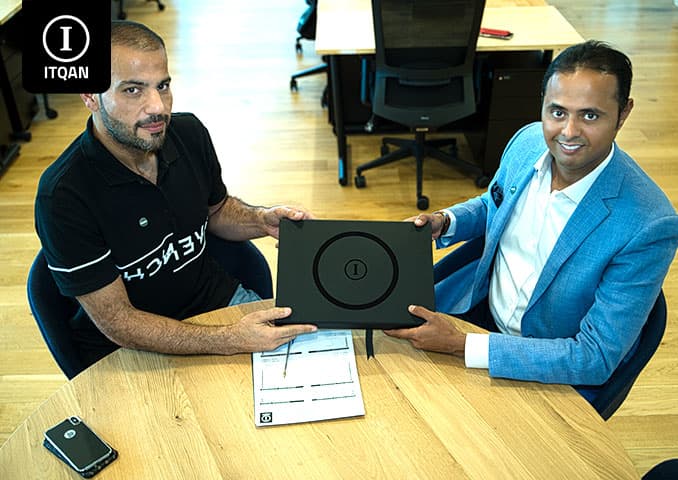Dubai is one of the world’s leading business destinations, combining advanced infrastructure, flexible trade policies, and promising investment opportunities. Setting up a company in Dubai can be an important strategic move for entrepreneurs and investors looking to enter a vibrant market full of opportunities. Dubai is known as a major business hub in the Middle East, thanks to its strategic location linking the markets of Europe, Asia, and Africa, in addition to the legal and regulatory environment that contributes to attracting companies from all over the world.
It is essential to have a clear and comprehensive understanding of the procedures and steps required to establish a company in Dubai . This includes choosing the right type of company, determining the location, gathering the necessary documents, and dealing with the necessary licenses and permits. In this article, we will review everything you need to know to establish a company in Dubai, including the costs, required documents, different licenses, and best practices to ensure the success of the establishment process. Whether you are a new investor or a business owner looking to expand your business, knowing these details will help you achieve your business goals efficiently and effectively.

جدول المحتوى
ToggleProcedures for establishing a company in Dubai
Establishing a company in Dubai requires following a set of important procedures and steps. Here is a brief guide to these procedures:
- Specify the type of company: Specify the type of legal entity for your company, such as a limited liability company (LLC), a private joint-stock company, or a branch of a foreign company.
- Choose the business activity: Choose the business activity in which your company will operate, as the activity affects the type of licenses required.
- Trade Name Registration: Choose a trade name for your company and check its availability through the Dubai Department of Economic Development (DED) or the competent authority of the free zone if you are establishing your company in one.
- Obtaining initial approvals: Obtain initial approvals from the government agencies relevant to your business activity.
- Signing the Articles of Association: Prepare and sign the Articles of Association with potential partners. This must be notarized if necessary.
- Office Rental: Obtain a lease for an office or business space. This is necessary to obtain licenses.
- Registration with government departments: Register your company with the Department of Economic Development (DED) or the relevant authority in the free zone to obtain a commercial license.
- Apply for Licenses: Apply for a business license, where you will need to submit a set of documents such as passports, lease agreement, and any other required documents.
- Open a bank account: Open a business bank account with one of the approved banks in Dubai.
- Complete the registration procedures: Obtain the establishment card or tax identification number if your activity requires it.
- Issuing visas: If you need to hire employees, apply for work and residence visas.
- Comply with local laws: Ensure compliance with all local laws and regulations regarding taxes, health and safety, and labor.
Licenses you need to set up a company in Dubai
When setting up a company in Dubai , you need to obtain a set of licenses and permits to operate your business legally. The licenses required depend on the type of business and the type of company you are setting up. Here is an overview of the basic licenses you may need:
- Trade License: A trade license is the basis for operating any business in Dubai. It is issued by the Department of Economic Development (DED) or the competent authority in the free zone if your company is located in one. Types of trade licenses vary depending on the type of activity, such as industrial, commercial, or professional activities.
- Industrial License: If you are planning to set up a factory or production unit, you will need an industrial license. This is issued by the Department of Economic Development (DED) or the competent authority in the relevant free zone.
- Professional License: If the company provides professional services such as consulting, law, or accounting, it will need a professional license. This license is granted based on the nature of the service provided.
- Free Zone Business License: If you are setting up your business in a free zone, you will need a free zone license. Each free zone in Dubai has its own requirements and licenses.
- Foreign Company Branch License: If you intend to open a branch of a foreign company in Dubai, you will need a foreign company branch license, and the requirements for this license vary depending on the activity of the parent company.
- Operating License and Renewal: After the company is established, the license must be renewed regularly. Renewal includes checking compliance with local laws and renewing all necessary permits.
- Health and Security Licenses: For some activities such as food or medicine trading, you may need additional health or security licenses. These licenses are issued by the competent authorities such as the Dubai Health Authority.
- Environmental Licenses: If your activity impacts the environment, you may need an environmental license from the Dubai Environment Agency.
Laws to follow when establishing a company in Dubai
When setting up a company in Dubai , there are a number of laws and regulations that must be adhered to to ensure smooth and legal operation. Here are the most important laws that you must adhere to:
- Companies Law: The UAE companies law, including companies in Dubai, regulates the incorporation procedures, legal requirements, and types of companies permitted. This includes the Federal Commercial Companies Law No. 2 of 2015, as amended by Federal Law No. 26 of 2020.
- Foreign Ownership Law: The Foreign Ownership Law regulates the ownership requirements for companies. In some activities, you may need a local partner who owns a certain percentage of the company’s shares, while in free zones, full foreign ownership may be available.
- Tax law: This includes tax laws such as Value Added Tax (VAT) and Corporation Tax. Businesses are required to register for VAT if their revenue exceeds a minimum threshold.
- Labour Law: The UAE Labour Law regulates the relationship between employers and employees, including workers’ rights, working hours, wages, and working conditions. Companies must comply with the requirements of Federal Labour Law No. 8 of 1980, as amended by Federal Law No. 12 of 2022.
- Consumer Protection Law: Regulates the rights and protection of consumers, including ensuring the quality of goods and services, return policies, and protecting customer data.
- Data Protection Law: Includes personal data protection laws, such as the Personal Data Protection Law (PDPL) in Dubai. Companies are required to secure customers’ personal data and not use it illegally.
- Health and Safety Laws: Health and safety laws in the workplace regulate the conditions that must be met to ensure a safe and healthy working environment, including occupational safety procedures and preventive measures.
- Anti-Money Laundering Law: Includes anti-money laundering and counter-terrorist financing laws, which require companies to take measures to ensure that their activities are not used to launder money or finance illegal activities.
- Trademark Law: Regulates trademark rights and their protection. Any trademarks used by a company must be registered to ensure intellectual property rights.
- Licensing Laws: Compliance with commercial, industrial and professional licensing requirements specified by the competent authorities such as the Department of Economic Development (DED) or the responsible authorities in the free zones.
- Environmental laws: Environmental laws require companies to adhere to environmental protection measures and obtain environmental licenses if the company’s activities affect the environment.
Cost of establishing a company in Dubai
The cost of setting up a company in Dubai is affected by a number of different factors including the type of company, business activity, and licensing requirements. Here is an overview of the main components of incorporation costs:
- Registration and Licensing Fees: These include fees for registering a trade name and obtaining a trade license. These fees depend on the type of business activity, and the area in which your company will be located, whether it is in a free zone or under the supervision of the Department of Economic Development (DED).
- Rental Costs: This includes the cost of renting an office or commercial space. This depends on the location and the office space you need, whether it is in a free zone or one of the non-free zones in Dubai.
- Legal Document Preparation Costs: This includes fees for preparing and notarizing the articles of association and any other legal documents related to the establishment of the company. This may require the services of a lawyer or legal advisor.
- Administrative costs: include application fees for various licenses and permits, and annual renewal costs for these licenses.
- Banking costs: These include fees for opening a business bank account, as well as any initial capital deposit requirements that may be required of businesses.
- Visa costs: This includes fees for issuing work and residence visas for company employees, depending on the number of visas required and the type of activities you will be undertaking.
- Insurance costs: This includes insurance required by the company, such as property insurance and health insurance for employees.
- Special License Costs: For some special activities such as industrial or health activities, you may need additional licenses or permits which may have additional costs.
In conclusion, setting up a company in Dubai is an exciting and rewarding opportunity for any investor or entrepreneur looking to take advantage of the city’s thriving business environment. With an emphasis on understanding the intricacies of the procedures, and adhering to all legal requirements, new businesses can start their operations smoothly and achieve success in this dynamic market.
By preparing a solid business plan, gathering the required documents, and choosing the most appropriate type of license, investors can overcome potential obstacles and start building a strong foundation for their business. Dubai is an ideal environment for business thanks to its supportive investment incentives, modern infrastructure, and the diversity of the markets it offers.
Ultimately, the key to success in setting up a company in Dubai lies in thorough knowledge and preparation. Through this article, we hope you have gained a clear and comprehensive vision on how to proceed successfully through this process. Remember, every step you take, from understanding what paperwork is required, to completing the legal procedures, contributes to building a bright future for your company in one of the most dynamic and progressive cities in the world.
The most important frequently asked questions about establishing a company in Dubai
What is the labor law in Dubai?
Labor law regulates the rights and duties of employers and employees, including wages, working hours, and working conditions.
Can a company be established without a local partner?
Yes, if the company is located in a free zone.
What are the steps required to open a business bank account?
Providing legal documents, such as licenses, passports, and office lease.
What are the data protection requirements in Dubai?
Companies must comply with personal data protection laws and ensure data security.
How can Saudi investors start a business in Dubai?
They can follow the same normal steps to establish a company, subject to any special agreements or nationality requirements.
















